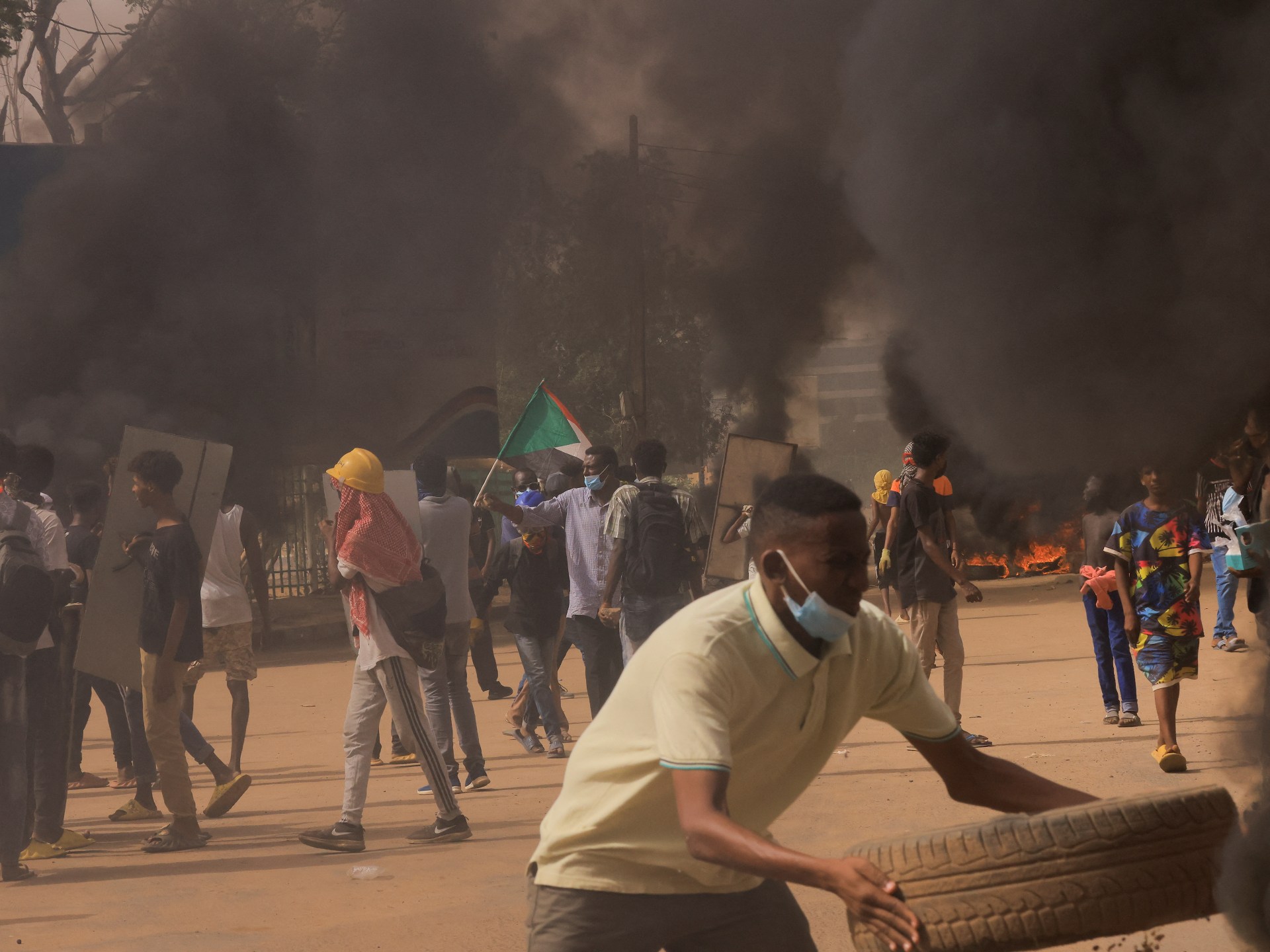Al-Jazeera correspondent in Sudan said that violent confrontations erupted between demonstrators and the police in front of the parliament headquarters in the city of Omdurman, as part of a new wave of demonstrations in several cities calling for civilian rule and the removal of the military from power in the country.
A source in Sudan's Central Committee of Doctors told Al Jazeera that there were dozens of injuries in today's demonstrations, some of them serious.
Al-Jazeera correspondent added that the security forces used tear gas in the city of Khartoum North to prevent demonstrators from crossing the Mak Nimr Bridge;
As a result, a number of them suffocated.
The capital witnessed the closure of bridges, a heavy security presence, a search of cars, and the closure of some roads by police armored vehicles.
The security forces also closed the roads leading to the headquarters of the army's general command and the presidential palace with concrete barriers and barbed wire, to avoid the arrival of the demonstrators.
The security forces also used tear gas to disperse similar popular demonstrations in Omdurman, and the French Press Agency quoted the Doctors Committee as saying that a citizen was "killed by a vehicle belonging to the coup forces" in the city of Omdurman, adjacent to Khartoum.
The demonstrators raised slogans calling for the removal of the military from power and retribution for the revolution's dead.
Thousands of protesters came out in Khartoum and the cities of Omdurman (west), Bahri (north), Madani and Manaqil (central), Atbara (north), Port Sudan, Kassala and Gedaref (east), Damazin, Sinnar, Singa (southeast), Al Obeid (south), El Fasher, Nyala and El Geneina. (West).
Eyewitnesses told Anadolu Agency that the internet service was cut off from offices and mobile phones hours before the start of the demonstrations called by activists on the occasion of the first anniversary of the army's ouster of its civilian partners from power on October 25 last year.
The so-called "resistance committees" were formed in cities and villages, following the outbreak of the protests on December 19, 2018, and had the largest role in managing demonstrations in neighborhoods and cities until the army leadership dismissed then President Omar al-Bashir, on April 11, 2019.
On October 25, 2021, army chief Abdel Fattah al-Burhan imposed measures;
These include the dissolution of the transitional cabinet and the sovereign, the dismissal of governors, the arrest of officials and politicians, and the declaration of a state of emergency, which the rejectionists considered a “military coup.”
Before Al-Burhan’s exceptional measures, Sudan has been living since August 21, 2019 in a transitional phase that ends with holding elections in early 2024, during which power is shared by the army, civil forces and armed movements that signed a peace agreement with the government in 2020.

